-World-class..
distribution -Reaching closer to the farmer



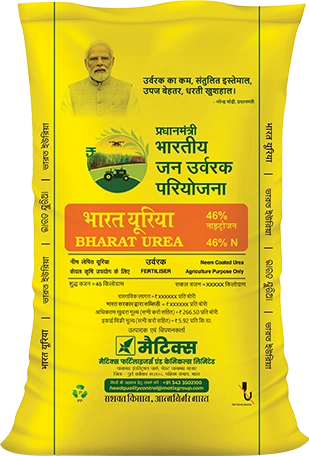
Urea, a white crystalline solid with 46% nitrogen content, is the highest among solid nitrogen fertilisers. Being more resistant to moisture, it can be directly applied to soil with standard equipment. Widely used in the agriculture industry, its an essential nutrient for plant growth, boosting crop yield and health. Versatile and effective, its a cornerstone of modern farming, contributing to increased agricultural productivit
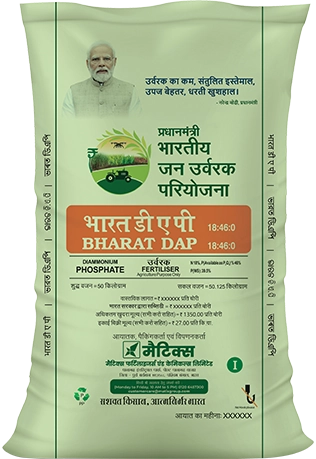
Diammonium phosphate (DAP) is a widely used phosphorus fertiliser worldwide. It contains two essential nutrients vital for plant growth: nitrogen and phosphorus.
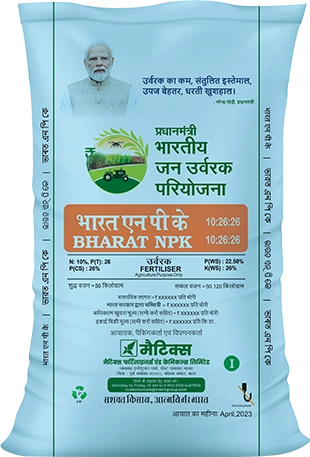
NPK (10:26:26) is a DAP-based composite fertiliser with relatively high levels of phosphorus and potassium. It is a valuable tool for addressing phosphorus and potassium deficiencies in agricultural soils, especially in soils prone to leaching. It also promotes root development, flowering, and fruiting in plants.
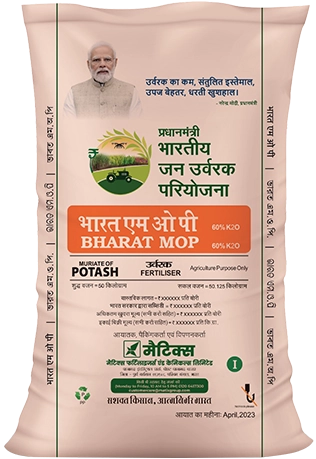
MOP (Muriate of Potash) or potassium chloride, is a common potassium (K) fertiliser mainly applied in agriculture. It is essential for plant growth, stress tolerance, and ensuring fruit quality. It can help enhance disease resistance in plants and is valuable for soils deficient in chloride.
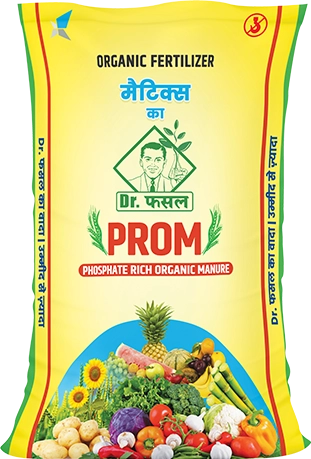
Phosphate Rich Organic Manure is an enriching manure produced by co- composting organic manure with rock phosphate minerals in fine size.
Benefits
Doses
50-100 kg/acre as per crop requirement or as per recommendation of concern State Agriculture University/Department.
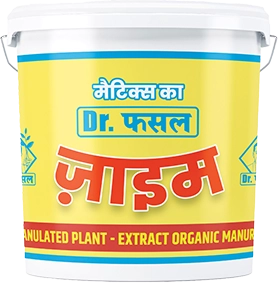
Zyme granules are made from organic Ascophyllum Nodosum/seaweed extract. The bio enzyme granules are rich in macro-nutrients and increase crop yields significantly.
Benefits
Doses
8 kg/acre as basal/top dressing to get best results or as per recommendation of concern State Agriculture University/Department.
Three applications during the crop cycle:
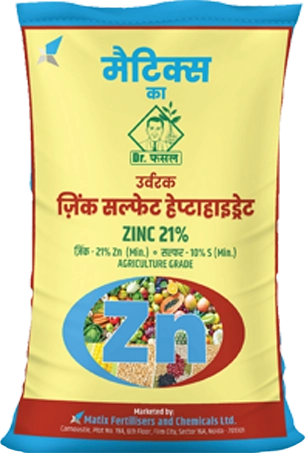
Zinc is an essential constituent of several important enzyme systems in plants. A critical level of zinc is required in the soil before roots will grow or function effectively. Prolonged deficiency of zinc in soil may results in poor yield.
Benefits
Doses
10 Kg/acre or as per recommendation of concern State Agriculture University/Department.
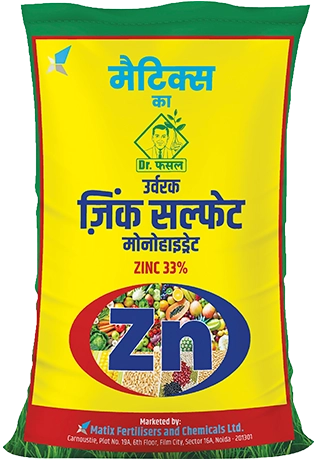
Zinc is one of the essential micronutrients that acts as a catalyst for activating enzymes required for synthesis of plant proteins. Zinc Sulphate Monohydrate plays a vital role in photosynthesis, carbohydrate metabolism, sucrose and starch formation.
Benefits
Doses
4 to 5 kg/acre in soil application or as per recommendation of concern State Agriculture University/Department.
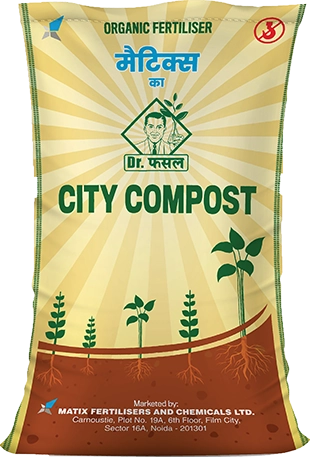
City Compost is a bio-degradable organic fertilizer that is manufactured from city waste including crop residues, vegetables, leaves and fruits etc. under controlled conditions.
Benefits
Doses
5 to 50 bags of compost per acre or even more depending upon the crop or as per recommendation of concern State Agriculture University/Department.
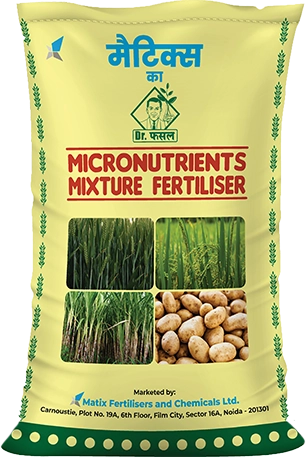
Micronutrients are crucial for plant growth and play an important role in balancing crop nutrition. It is required in the micro-quantities to the crops. Micronutrients helps the major elements to perform their functions.
Benefits
Doses
5 to 8 kg/acre or as per recommendation of concern State Agriculture University/Department.
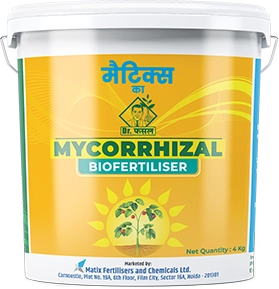
A mycorrhiza-based biofertilizer contains living microorganisms colonizing the rhizosphere or the interior of the plant when applied to seeds, plant surfaces, or soil and encourages growth by increasing the supply of primary nutrients to the host plant.
Benefits
| Benefits | Dose (Kg/acre) |
|---|---|
| Paddy, Wheat, Maize, Tomato, Soyabean, Cotton | 4 |
| Sugarcane, Potato, Chilli | 8 |
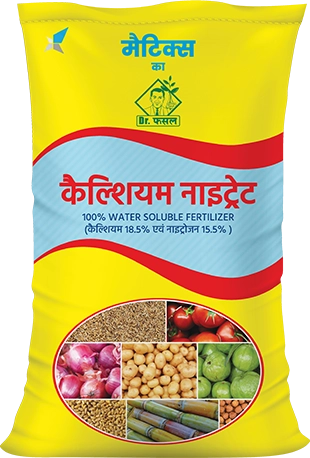
Calcium nitrate is an excellent source of calcium and important secondary nutrient for the growth of plants.
Benefits
Doses
10 kg per acre in basal application and foliar spraying at 1-2 kg per 200 Litre of water per acre or as per recommendation of concern State Agriculture
Three applications during the crop cycle:
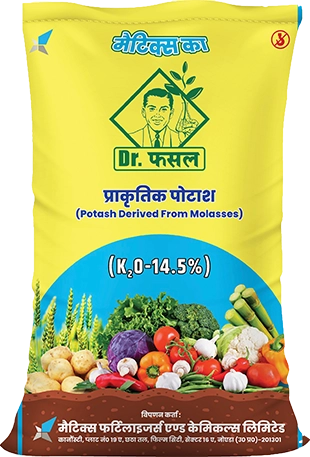
Dr. Fasal Natural Potash(14.5% K2O) is manufactured from molasses honey-like viscous syrup which is valuable by-product from the sugar industry. Specifications Moisture percent by weight maximum 5% Water soluble potassium as K20 percent by weight min. 14.5%
Benefits
Doses
40-50 kg per acre or as per recommendation of concern State Agriculture University/Department.